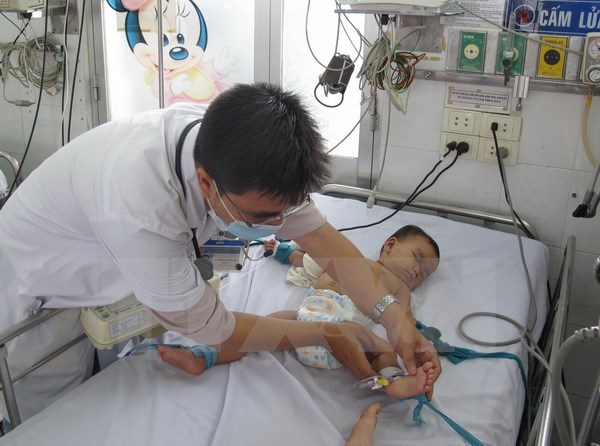Vietnam actively copes with potential epidemics
The epidemics abroad are likely to break out in Vietnam unless preventive measures are taken, head of the Health Ministry’s Preventive Medicine Department Tran Dac Phu said at a seminar in Hanoi.
 Illustrative image (Source: VNA)
Illustrative image (Source: VNA) Phu said vaccine-preventable diseases are scattered in areas which record a low rate of vaccination and limited public awareness of environmental and personal hygiene.
This year, the medical sector will strengthen monitoring systems in border areas, medical stations and the community to promptly discover and treat infections, and closely oversee influenza, dengue, foot-and-mouth, Japanese encephalitis and Zika cases.
The ministry will continue building emergency operations centres in several provinces, evaluating several new infectious diseases, and consolidating quick-response teams in all channels.
It will also embark on a project to improve the capacity of testing communicable diseases for 2016-2020, as well as enhance the inoculation rate to at least 95 percent of the district’s level.
According to the department, there were 110,876 dengue cases nationwide last year, including 36 fatalities, up 19 percent and down 18 cases, respectively, year-on-year.
More than 45,000 people were infected with foot and mouth disease, down 19.3 percent, including one fatality compared to six recorded in 2015.
Zika infection amounted to 219 cases last year and 13 this year, mostly in southern metropolis Ho Chi Minh City and a suspected microcephalic case in the Central Highlands province of Dak Lak.
Nguyen Duc Tien from the Health Ministry’s Agency of Health Examination and Treatment said the agency has worked to reduce potential fatalities, including ensuring a sufficient medical staff to offer treatment to dengue patients, offering intensive training and strengthening consultation on difficult cases.
This year, it will continue promoting dengue treatment in the south by offering more training courses and launching a supervision system.-VNA













